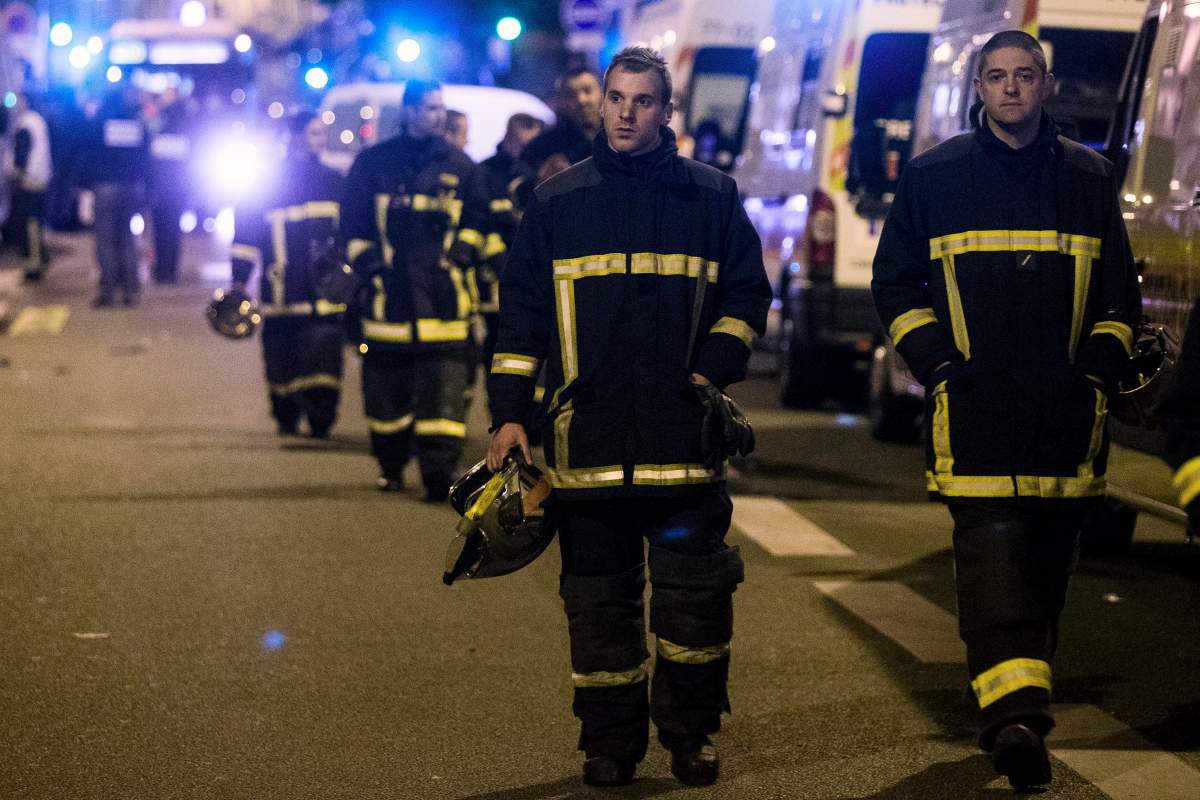It took one deadly act to raise Canada nine places in a global terrorism ranking of 163 countries in a report covering 2017 incidents.

The Global Terrorism Index 2018, released on Wednesday, ranked Canada 57th, and much of it had to do with the six people who were killed in a mass shooting at a Quebec City mosque in January 2017.
Coverage of the Quebec mosque shooting on Globalnews.ca:
The report was produced by the Institute for Economics and Peace, a think tank that works to “develop metrics to analyze peace and to quantify its economic value.”
The institute derived results based on data from the Global Terrorism Database (GTD), which is collected by people at the National Consortium for the Study of Terrorism and Responses to Terrorism (START) and the University of Maryland.
Index scores were generated by looking at four factors in a given year: the number of terror incidents, the number of deaths caused by terrorists, the number of terror-caused injuries and the amount of property damage from terror incidents.
Those factors were then weighed with scores between zero and three and a five-year weighted average was applied to them to show the “latent psychological effect of terrorist acts over time.”
Deaths were weighed higher than other factors.
READ MORE: Deadliest mass slayings in recent Canadian history
Canada registered an overall score of 3.527 — a decline of 0.528 from 2016, and of 2.387 from its score in 2002.
The report noted that Canada had six terror-related deaths in 2017, and that all of them came in the Quebec City mosque shooting by a gunman described as a “right-wing extremist.”
However, this characterization has been challenged by at least one psychiatric expert.

Get daily National news
The shooter was Alexandre Bissonnette, a Quebec City man who pleaded guilty in March to six counts of first-degree murder and six additional counts of attempted murder.

Before the shooting, Bissonnette developed what he called an “obsession” with mass shooters.
He developed an interest in the 1999 Columbine shooting when he was 15, and then the 2014 mass shooting close to the University of California, Santa Barbara, in which Elliot Rodger killed six people and hurt 14 others.
Bissonnette would develop suicidal thoughts that evolved into the idea of committing a mass shooting — an idea he became obsessed with.
He also started reading about issues such as Islamist terrorism and immigration, convincing himself that if he shot people at a mosque, he could be protecting his family from terrorist attacks.
Bissonnette’s status as a terrorist has been questioned — a psychiatrist testifying for the Crown argued at a sentencing hearing that Bissonnette is not a terrorist because he didn’t follow a particular ideology.
“The crime was too egotistical to be a terrorist act,” Gilles Chamberland said.
Bissonnette, he said, was seeking fame and power for racist beliefs.
Far-right extremism
Nevertheless, the report shows far-right extremism growing around the world, even as total terrorist incidents decline.
Terrorism-related deaths dropped for the third straight year after they peaked in 2014, the report said, with total deaths (18,814) falling by 27 per cent year over year.
Deaths fell furthest in Iraq, where they dropped from 9,783 to 4,271, for a decline of 56 per cent.
Meanwhile, total deaths from terrorism across Europe fell by 75 per cent, with “significant falls” recorded in Belgium, France and Germany.
All of this happened as deaths associated with far-right terrorism grew from three in 2014 to 17 in 2017.
The report noted that far-right groups and individuals caused 66 deaths from terrorism in 113 attacks between 2013 and 2017.
Of those, 17 deaths and 59 attacks happened last year.
There were 30 attacks in the U.S. alone; they killed 16 people.
Most attacks were perpetrated by lone actors who followed far right, anti-Muslim or white nationalist ideologies.
READ MORE: CNN’s Don Lemon calls white men the ‘biggest terror threat’ in America, and data backs him up
The report came just over a month after CNN host Don Lemon said white men were the biggest terror threat in the U.S.
He supported this assertion with various reports, including one by the Government Accountability Office (GAO) that showed 225 deaths in U.S. incidents that were carried out by domestic violent extremists between Sept. 12, 2001, and Dec. 31, 2016.
Far-right extremists were blamed for 106 of those deaths in 62 separate incidents, while Islamic extremists were blamed for 119 deaths in 23 incidents.
Many of the deaths attributed to Islamist extremists happened in one incident — the 2016 Orlando nightclub shooting, which killed 50, including the gunman.
Attacks carried out by far-right extremists outnumbered incidents perpetrated by Islamists in 10 out of 15 years, the GAO added.
- With files from Raquel Fletcher














Comments
Comments closed.
Due to the sensitive and/or legal subject matter of some of the content on globalnews.ca, we reserve the ability to disable comments from time to time.
Please see our Commenting Policy for more.